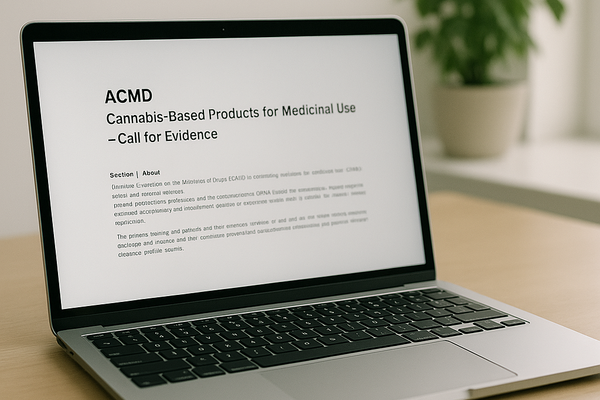Our submission represents the collective expertise of CTA members across cultivation, manufacturing, clinical practice, import and export, compliance, and patient advocacy.
The CTA is deeply concerned that the ACMD is replicating the same evidence-gathering process previously undertaken by the Home Office, rather than building upon the significant body of existing UK and international data. This repetition risks further delaying progress for both patients and prescribers.
We emphasised two critical observations within our response:
- The ACMD are treating a plant-based medicine as though it were a synthetic medicine produced using double-blind trials and applying the same cautionary principle to it.
- The ACMD need to review their protocol on Plant-Based Medicines regarding risk versus benefit criteria.
These points underscore a central issue, that cannabis-based medicines cannot and should not be judged solely through the lens of pharmaceutical trial structures designed for single-molecule synthetic drugs.
Barriers to Prescribing and Access
The CTA’s evidence highlights that NHS access to CBPMs remains obstructed by structural and institutional barriers, including:
- Restrictive prescribing criteria that exclude most GPs and limit access to a small number of specialists.
- Institutional caution within NHS Trusts, often driven by stigma, lack of education, and fear of reputational risk.
- Disjointed data systems, with valuable real-world evidence from private clinics excluded from NHS evaluation.
- Procurement and funding obstacles, as CBPMs are not embedded within NHS supply systems.
- Insufficient clinician training, particularly regarding the endocannabinoid system and cannabinoid pharmacology.
This results in inequitable access, forcing many patients to either pay privately or turn to unregulated sources — a situation that undermines patient safety and public trust.
A Call for Common-Sense Reform
The CTA’s response recommends a coordinated and pragmatic approach to cannabis regulation through the creation of a Cannabis Office. This central body would manage licensing, research, and data integration across departments such as the Home Office, MHRA, DEFRA, and DHSC.
We also call for:
- Broader prescribing rights for trained independent prescribers.
- Recognition of real-world evidence and international clinical outcomes.
- Clear and fair frameworks for NHS reimbursement and supply.
- Legislative reform of the Proceeds of Crime Act (2002) to exclude licensed CBPM operators.
- Integration of CBPM datasets into NHS Digital.
- Comprehensive professional education and public awareness campaigns.
- Evidence-Based Compassion Over Bureaucratic Delay
Six years after the rescheduling of medical cannabis, NHS patients remain almost entirely excluded from access — despite growing global evidence of efficacy in chronic pain, epilepsy, PTSD, MS, and palliative care.
Until cannabis-based medicines are assessed through a framework that recognises their plant-based origin, rather than treating them as synthetic pharmaceuticals, reform will remain stalled and patients will continue to suffer unnecessarily.
The CTA urges the ACMD to adopt a risk-versus-benefit approach appropriate for plant-based medicines, recognising the distinct safety profile and therapeutic potential of cannabis-based products.
Next Steps
The Cannabis Trades Association calls on the Home Office and ACMD to:
- Recognise the established safety, efficacy, and international acceptance of CBPMs.
- Collaborate with trade, research, and clinical stakeholders to streamline licensing and data-sharing.
- Implement a clear and compassionate framework that ensures equitable access for UK patients.
The full CTA response to the ACMD Call for Evidence is available below







